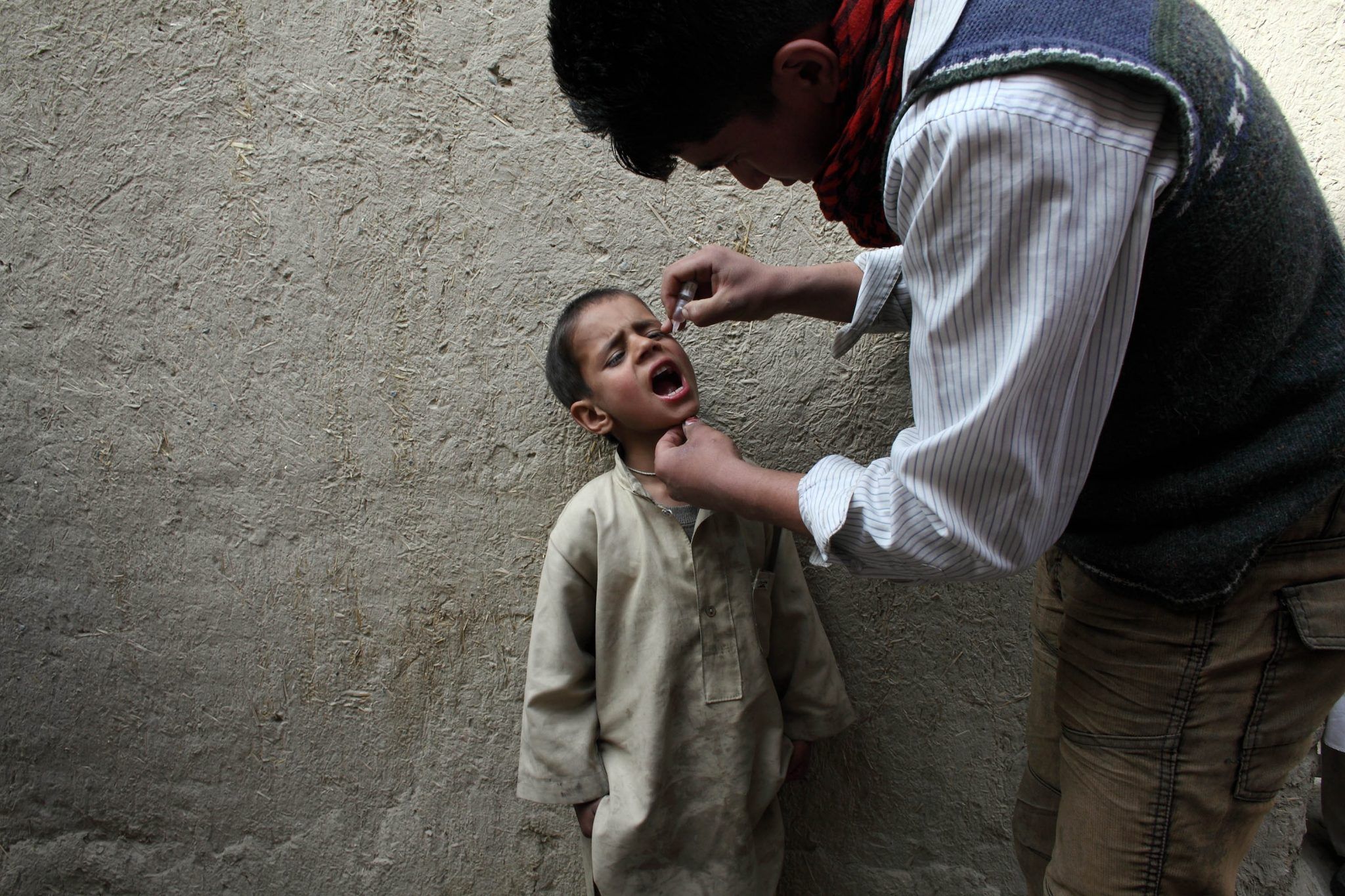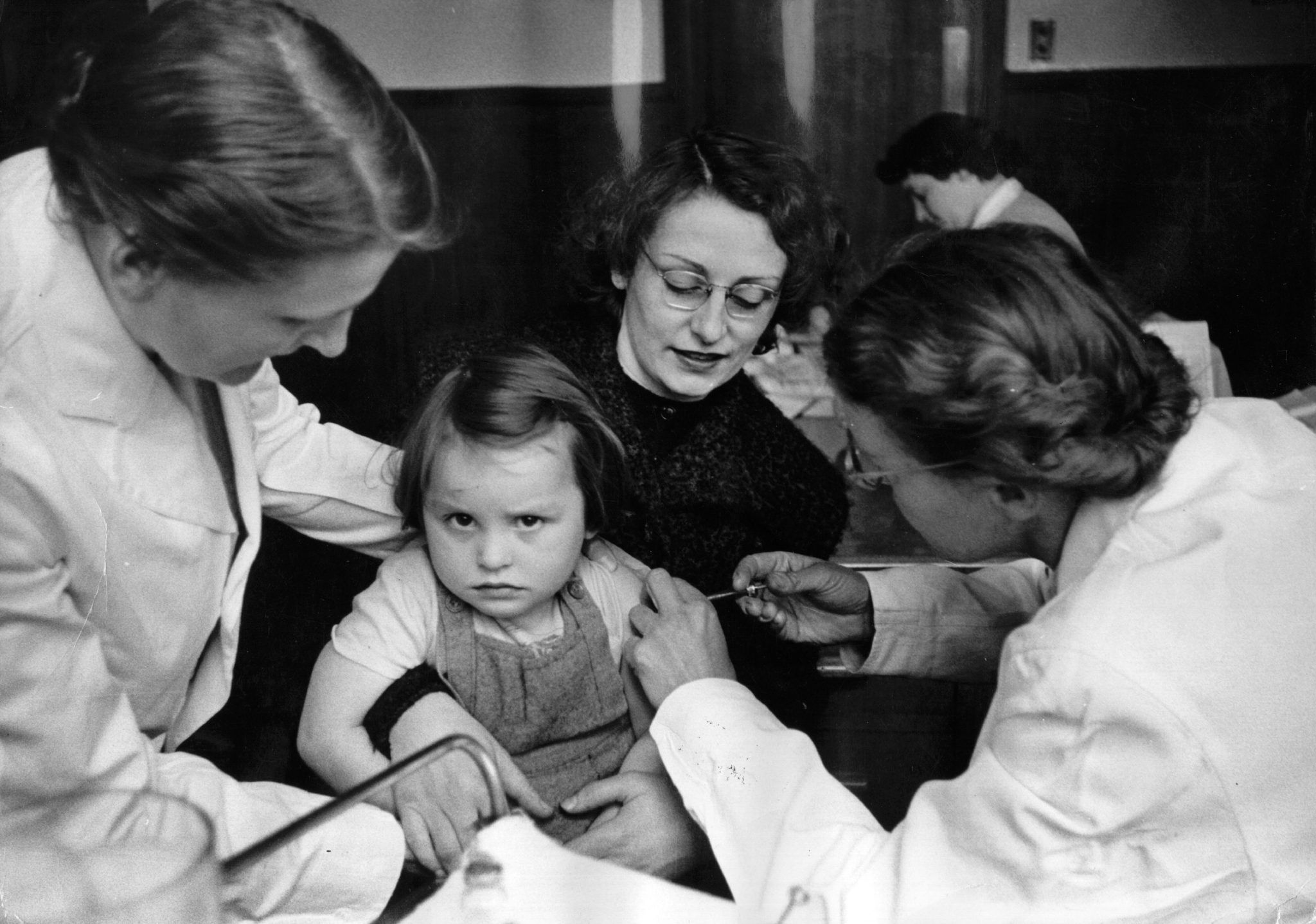
News

Share
22nd June 2022
02:49pm BST

 The virus was discovered at Beckton (Thames Water)[/caption]
Several closely-related polio viruses were detected between February and May this year. It carried on evolving and has now been classified as a 'vaccine-derived' poliovirus type 2 (VDPV2).
There has been some spread between closely linked individuals in northeast London, officials believe. They think that these people, who are likely to be extended family members, are now shedding the poliovirus strain in their faeces.
A national incident has been declared, and investigations will aim to determine where community spread is occurring and to what extent. But according to Dr Vanessa Saliba, a consultant epidemiologist at the UKHSA, vaccine-derived poliovirus is rare and the overall risk to the public is "extremely low".
https://twitter.com/SkyNews/status/1539588680289075200
She said: "Vaccine-derived poliovirus has the potential to spread, particularly in communities where vaccine uptake is lower. On rare occasions it can cause paralysis in people who are not fully vaccinated so if you or your child are not up to date with your polio vaccinations it's important you contact your GP to catch up or, if unsure, check your red book.
"Most of the UK population will be protected from vaccination in childhood, but in some communities with low vaccine coverage, individuals may remain at risk.
"We are urgently investigating to better understand the extent of this transmission and the NHS has been asked to swiftly report any suspected cases to the x, though no cases have been reported or confirmed so far."
At this point, the virus has only been detected in sewage samples, and no cases of paralysis associated with the virus have been reported.
[caption id="attachment_343460" align="alignnone" width="2048"]
The virus was discovered at Beckton (Thames Water)[/caption]
Several closely-related polio viruses were detected between February and May this year. It carried on evolving and has now been classified as a 'vaccine-derived' poliovirus type 2 (VDPV2).
There has been some spread between closely linked individuals in northeast London, officials believe. They think that these people, who are likely to be extended family members, are now shedding the poliovirus strain in their faeces.
A national incident has been declared, and investigations will aim to determine where community spread is occurring and to what extent. But according to Dr Vanessa Saliba, a consultant epidemiologist at the UKHSA, vaccine-derived poliovirus is rare and the overall risk to the public is "extremely low".
https://twitter.com/SkyNews/status/1539588680289075200
She said: "Vaccine-derived poliovirus has the potential to spread, particularly in communities where vaccine uptake is lower. On rare occasions it can cause paralysis in people who are not fully vaccinated so if you or your child are not up to date with your polio vaccinations it's important you contact your GP to catch up or, if unsure, check your red book.
"Most of the UK population will be protected from vaccination in childhood, but in some communities with low vaccine coverage, individuals may remain at risk.
"We are urgently investigating to better understand the extent of this transmission and the NHS has been asked to swiftly report any suspected cases to the x, though no cases have been reported or confirmed so far."
At this point, the virus has only been detected in sewage samples, and no cases of paralysis associated with the virus have been reported.
[caption id="attachment_343460" align="alignnone" width="2048"] An Afghan health worker administers the polio vaccine to a child in 2010 in Kabul, Afghanistan (Photo: Getty)[/caption]
It is normal for one to three 'vaccine-like' polioviruses to be detected each year in UK sewage samples - though these have always been one-off findings not related to each other which then disappear. This is the first time the same virus has been discovered a few months apart since the last case in the eighties.
The virus is likely to have been by someone who was recently vaccinated against polio in a country where it is still present.
An Afghan health worker administers the polio vaccine to a child in 2010 in Kabul, Afghanistan (Photo: Getty)[/caption]
It is normal for one to three 'vaccine-like' polioviruses to be detected each year in UK sewage samples - though these have always been one-off findings not related to each other which then disappear. This is the first time the same virus has been discovered a few months apart since the last case in the eighties.
The virus is likely to have been by someone who was recently vaccinated against polio in a country where it is still present.
Most people who get polio do not have symptoms. But those who do might experience mild, flu-like symptoms such as a high temperature, fatigue, headaches, vomiting or muscle pain. In the rare cases when polio causes paralysis, this is not usually permanent and movement slowly comes back over weeks or months. It can still be life threatening if the paralysis affects muscles used for breathing.
[caption id="attachment_343453" align="alignnone" width="2048"] A girl being given a vaccine against polio in 1956 (Photo: Getty)[/caption]
A girl being given a vaccine against polio in 1956 (Photo: Getty)[/caption]
The last five to 10 years has shown a steady decline in the number of parents taking their children to get the polio vaccine. Vaccine coverage for the preschool booster, which is offered to children when they turn three, is 71% in London.
Jane Clegg, chief nurse for the NHS in London, told Sky News: "The majority of Londoners are fully protected against polio and won't need to take any further action, but the NHS will begin reaching out to parents of children aged under five in London who are not up to date with their polio vaccinations to invite them to get protected. Meanwhile, parents can also check their child's vaccination status in their red book and people should contact their GP practice to book a vaccination should they or their child not be fully up to date." If more virus samples are identified, targeted interventions could begin, including vaccinations and the stool samples collections in areas where the virus has been found. Related stories: